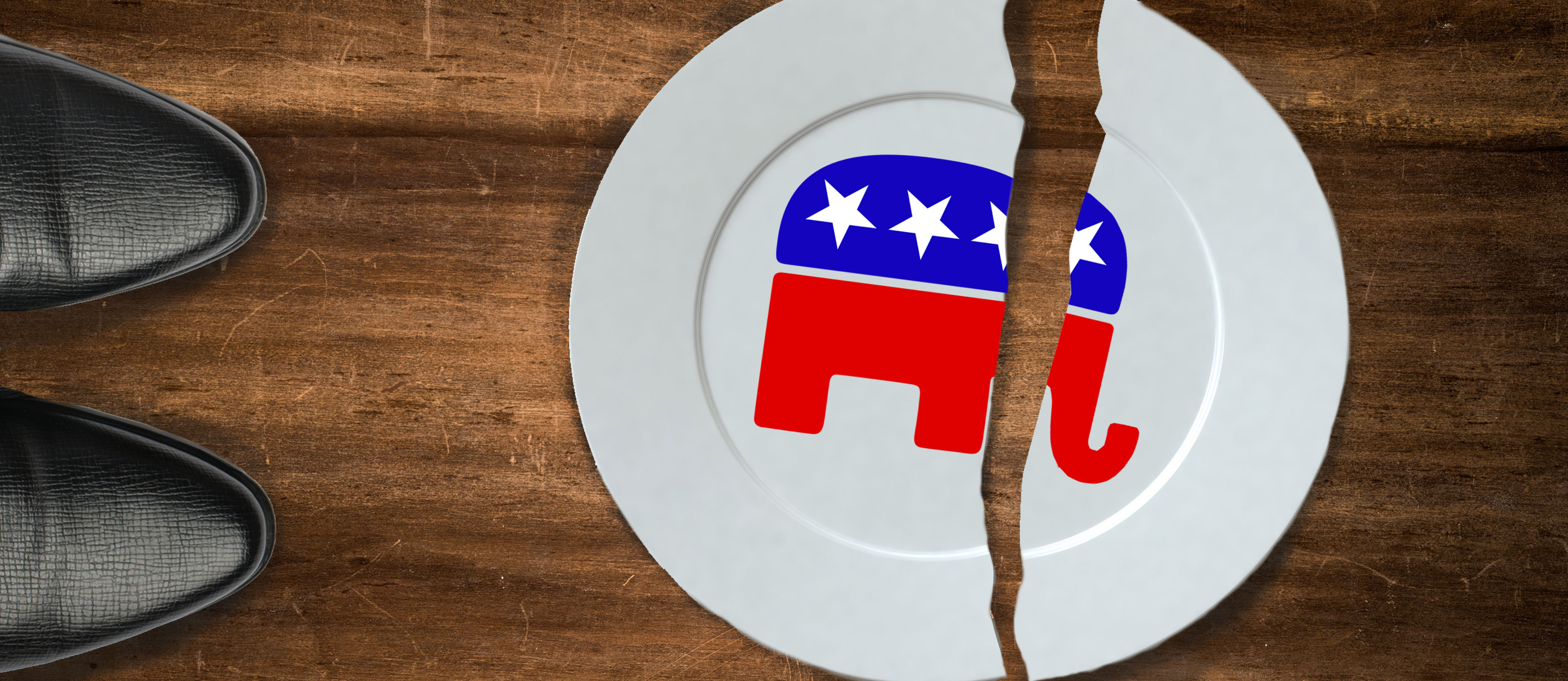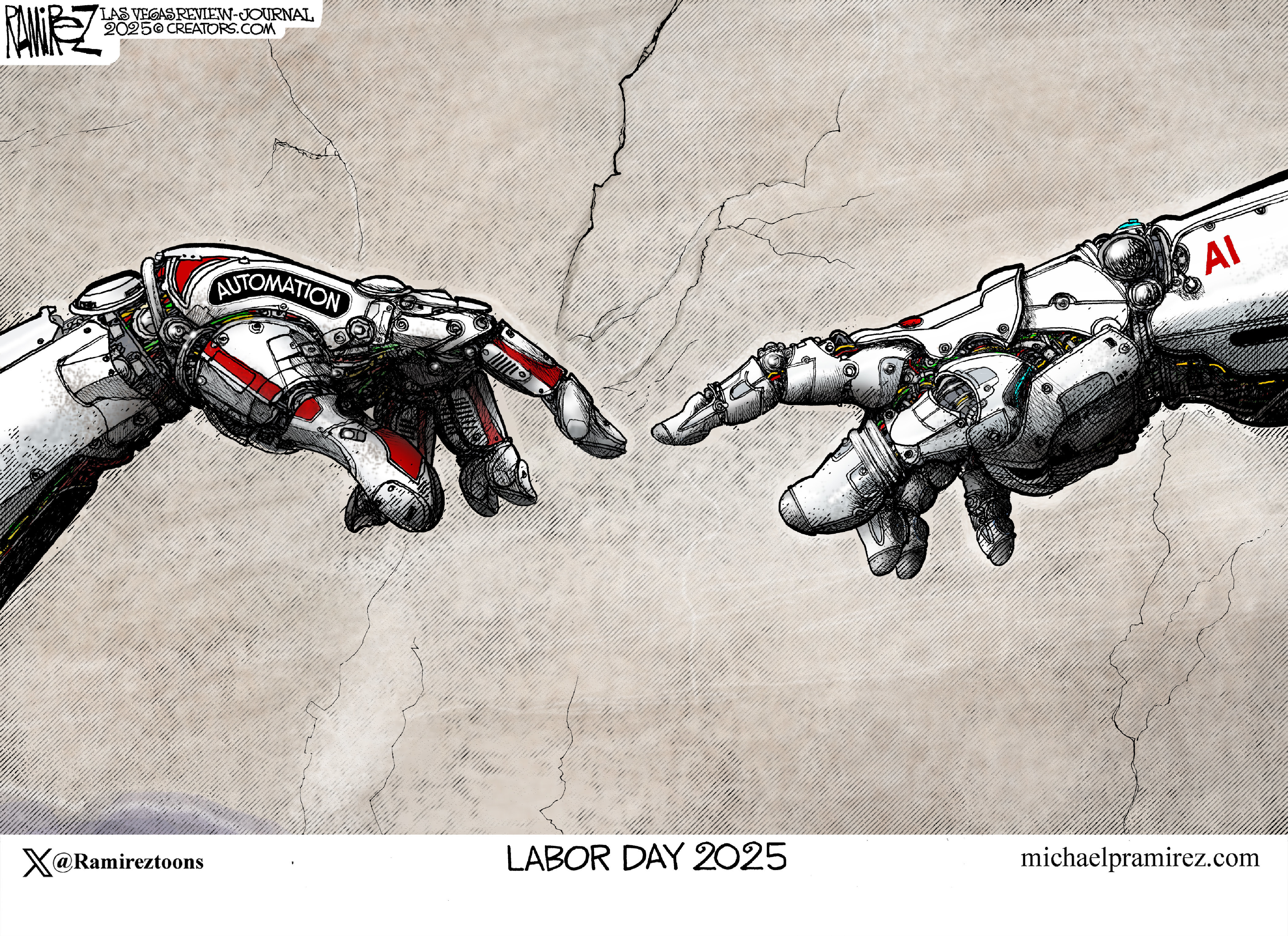How Trump is changing Republican Party values
Since when do GOP voters like Russia? Since Trump came along.


Growing up in the final years of the Cold War on a steady diet of Chuck Norris movies, "Evil Empire" rhetoric, and Hulk Hogan-era wrestling, I thought Americans' hostile view of Russia was as absolute and unchangeable as the tides. The idea that any Americans, let alone conservatives, would ever grow to see Russia as a friend of the United States was inconceivable. We'd sooner see Americans embrace soccer as the national sport.
Yet here we are, less than 30 years later, and some Republicans appear to be reconsidering the former Red Menace. This change of heart can be chalked up in part to President Trump, who, despite criticism from GOP lawmakers, has cozied up to Russian President Vladimir Putin, and says getting along with Russia — long assumed to be the default enemy of freedom, the American way, and all this country holds dear — is a good thing. The voters are with him: Surveys show Republican voters are developing a less hostile stance toward Putin-era Russia.
Similarly, the percentage of Republicans who call tariffs "a bad thing" has plummeted from 63 percent to 46 percent since 2016 despite strong, continued, and consistent anti-tariff, pro-free trade stances from the GOP in Congress. Another recent Pew poll finds 73 percent of Republicans believe Trump's tariffs would be "good for the U.S." despite other GOP leaders adhering to the pro-free trade position.
The Week
Escape your echo chamber. Get the facts behind the news, plus analysis from multiple perspectives.

Sign up for The Week's Free Newsletters
From our morning news briefing to a weekly Good News Newsletter, get the best of The Week delivered directly to your inbox.
From our morning news briefing to a weekly Good News Newsletter, get the best of The Week delivered directly to your inbox.
It is rare in American politics for a president to diverge so sharply from the rest of his party on issues, but for Trump, it seems to be working. This challenges our understanding of how partisanship works in America, and demands that we re-examine our assumptions about how much influence party politics really has over voters' opinions.
Political scientists have long understood a connection between partisanship and public opinion. Elected officials take issue positions in line with their supporters, and citizens (often with minimal interest in or information about issues) take cues from elites, like elected officials and trusted media personalities, to shape their own beliefs. Professor Joshua Dyck, co-director of the Center for Public Opinion at the University of Massachusetts-Lowell, calls individuals' opinions fluid and shaped by party identification. "It matters more what side you're on and what your party ID is than what your actual policy positions are," he says.
What happens when the messages from within one party are inconsistent? Will Republican voters follow the president or the rest of the party? The answers seem to depend on a few variables, including media coverage. Consistent support from right-leaning media outlets like Fox News has been crucial to Trump's wooing of the electorate. For comparison, former President George W. Bush proposed immigration reforms in 2007 (shortly after decisive Democratic wins in the 2006 midterms) that were substantially to the left of the GOP as a whole. He was rebuked not only by his party but by prominent media voices on the right. "Imagine what Trump would be dealing with," Dyck says, "if the 8-10 p.m. hour on Fox News was not supporting his policies. It would be a different story right now."
Dr. Philip Jones, who studies public opinion at the University of Delaware, also highlights the role of the media. Russia and trade policy have been "getting a ton of media coverage, (so) more voters are likely to hear about it, and are more likely to follow Trump's cue," he says.
A free daily email with the biggest news stories of the day – and the best features from TheWeek.com
Voter education also plays a role here. Recent research co-authored by Dyck and Shanna Pearson-Merkowitz shows Republicans who have the highest levels of information about issues like tariffs and relations with Russia are less likely to follow Trump's lead and instead stick with consistent GOP positions favoring free trade and skepticism toward Russia. Republican or not, it's few Americans devote much time or interest to educating themselves fully on the issues, especially complicated topics like trade, when a quick peek at the president's Twitter feed is so easy.
While Trump is clearly influencing opinions among Republicans in the electorate, Jones says it is important to keep these shifts in context. Yes, Republicans have become more favorable toward Putin, with 32 percent viewing Putin favorably last year, as opposed to just 13 percent in 2015. While that number has more than doubled, it still means that more than two-thirds of Republicans have not followed Trump's cues.
Still, Trump's ability to shift public opinion within the Republican Party should not be dismissed. Anyone who can convince some American conservatives to feel friendly toward the Russian Bear wields great power indeed.
Ed Burmila is an Assistant Professor of Political Science at Bradley University. He lives in Chicago and blogs politics at Gin and Tacos.
-
 Nvidia: unstoppable force, or powering down?
Nvidia: unstoppable force, or powering down?Talking Point Sales of firm's AI-powering chips have surged above market expectations –but China is the elephant in the room
-
 5 hard-working cartoons about Labor Day celebrations
5 hard-working cartoons about Labor Day celebrationsCartoons Artists take on creation of AI, spelling mistakes, and more
-
 Codeword: September 7, 2025
Codeword: September 7, 2025The Week's daily codeword puzzle
-
 Ghislaine Maxwell: angling for a Trump pardon
Ghislaine Maxwell: angling for a Trump pardonTalking Point Convicted sex trafficker's testimony could shed new light on president's links to Jeffrey Epstein
-
 The last words and final moments of 40 presidents
The last words and final moments of 40 presidentsThe Explainer Some are eloquent quotes worthy of the holders of the highest office in the nation, and others... aren't
-
 The JFK files: the truth at last?
The JFK files: the truth at last?In The Spotlight More than 64,000 previously classified documents relating the 1963 assassination of John F. Kennedy have been released by the Trump administration
-
 'Seriously, not literally': how should the world take Donald Trump?
'Seriously, not literally': how should the world take Donald Trump?Today's big question White House rhetoric and reality look likely to become increasingly blurred
-
 Will Trump's 'madman' strategy pay off?
Will Trump's 'madman' strategy pay off?Today's Big Question Incoming US president likes to seem unpredictable but, this time round, world leaders could be wise to his playbook
-
 Democrats vs. Republicans: which party are the billionaires backing?
Democrats vs. Republicans: which party are the billionaires backing?The Explainer Younger tech titans join 'boys' club throwing money and support' behind President Trump, while older plutocrats quietly rebuke new administration
-
 US election: where things stand with one week to go
US election: where things stand with one week to goThe Explainer Harris' lead in the polls has been narrowing in Trump's favour, but her campaign remains 'cautiously optimistic'
-
 Is Trump okay?
Is Trump okay?Today's Big Question Former president's mental fitness and alleged cognitive decline firmly back in the spotlight after 'bizarre' town hall event
